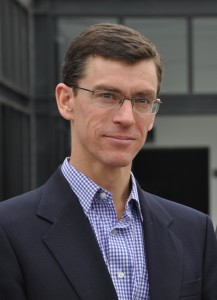6th March 2012
Peru joins EITI group – a success to celebrate
We’ve decided to do something new – we’re going to start blogging from the Embassy here in Lima. Our blogs will give us a chance to tell you a bit more about things we are and have been doing, as well as to share some of our ideas, impressions and experiences.

What better way to use my first blog than to congratulate Peru on being accepted into the EITI group as a “compliant country”. Peru becomes the first compliant country in the Americas after being judged by the EITI’s International Council when it met in February to have met the standards set. This is something lots of people here – in government, in the mining industry, in civil society – are right be delighted about. They have been working hard for this since 2005 when the Peruvian government endorsed the EITI Principles and started the application process.
“EITI” stands for the Extractive Industries Transparency Initiative. The purpose of the Initiative is to promote an international transparency standard for accountability in the oil, gas and mining industries. It dates back to 2002 when Tony Blair, then British Prime Minister, put the idea forward at the World Summit for Sustainable Development in Johannesburg and the Initiative was formally launched the next year in London. Since then countries in Africa, Asia, Europe and now South America, working with companies, industry groups, international organisations, investors and non-government organisations have endorsed the EITI Principles and joined the group. To be deemed to meet the EITI standards a country must have an effective process for annual disclosure and reconciliation of all government revenues from its extractives sector, allowing citizens to see how much their country receives from gas, oil and mining companies. The standards are tough to meet: only 13 countries worldwide, now including Peru, have been recognised to be fully compliant. You can find more information on the EITI website: www.eiti.org.
Peru has some of the richest mineral deposits in the world – these are and will continue to be a source of great national wealth here. In part because the mining sector is so important, it is also a source of controversy. Look at a newspaper in Peru almost any day of any week and you’ll find a story or report about the industry, sometimes good, sometimes bad. Everyone I’ve talked to who has been involved with the EITI project shares the hope that the effort that has and is being made in Peru to take the EITI Principles forward will help to build people’s confidence around the country and to avoid and resolve mining-related conflicts and disputes.
As I’ve said, we hope you’ll find our blogs interesting. And if there’s a subject you’d like to hear from us on do let us know.
Enjoyed reading the blog. Just to echo every word that was said to congratulate Peru on its commitment to the EITI process.
Thanks for sharing and – Way to go Peru!
Best wishes on your next posting.